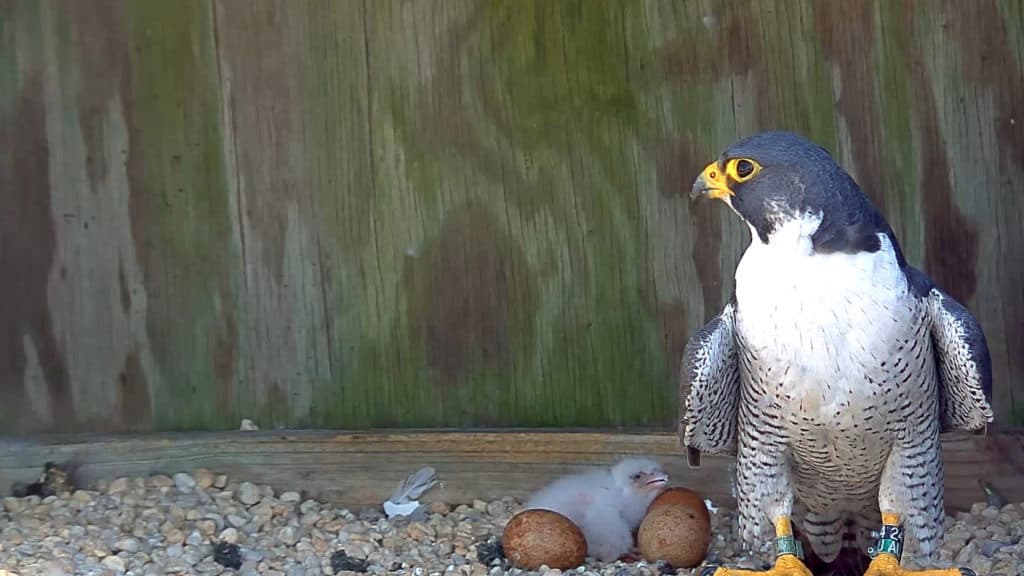The soap opera begins in 2020. A couple is living peacefully together in a big city high-rise. A new female swoops in, kicks out the resident female, and shacks up with her guy (home wrecker!). They produce a child. Tragically, the father dies in an accident. The resident female quickly finds a new lover.
But these are not humans. They are peregrine falcons residing high atop a building in downtown Richmond, Virginia, and their story plays out on a live webcam, which is back up and running for the 2021 nesting season.
The Virginia Department of Wildlife Resources (DWR) monitors a falcon nesting box on the west tower of the Riverfront Plaza downtown. Riverfront Plaza rises 22 stories over Byrd Street, by the James River. In season, the site is monitored by a public webcam 24 hours a day, so anyone can watch the falcons’ family life.
Falcons don’t build a typical nest. They simply arrange the gravel inside the box to their liking. Up to five eggs are laid in March or April. Both the male and female take turns on the eggs, though the female spends the most time on the nest, and the male spends the most time hunting for food. After a few weeks of incubation, the chicks hatch. It is normal for some of the eggs not to hatch. In 2020, only one of four hatched.
Once hatched, the chicks grow quickly. They transform from a fuzzy ball hiding under a parent to a full-feathered speedy predator in about 40 days. There are some comical interludes as the curious young birds learn to walk and fly. DWR specialists sneak into the nest and band the chicks before they fledge. This allows DWR to identify them and track their movements in the future.
Falcons feed primarily on other birds, so don’t be surprised to see a little blood. No bird lover likes to see a woodpecker turned into breakfast, but that is nature’s way.
And the falcons really are as fast as you have heard. Their level flight might be only 25 to 34 miles per hour, but in a dive, called a stoop, they can literally reach 200 miles per hour.
Since the camera went live for the 2021 season, mom and dad have been hanging out at the nest on a daily basis and sharing some meals. To date, no eggs have been laid. Hopefully that will change soon. Hit this link then hit the bookmark button, because you will want to check back every day. You can watch for yourself at dwr.virginia.gov/falcon-cam.
-Kendall Osborne



